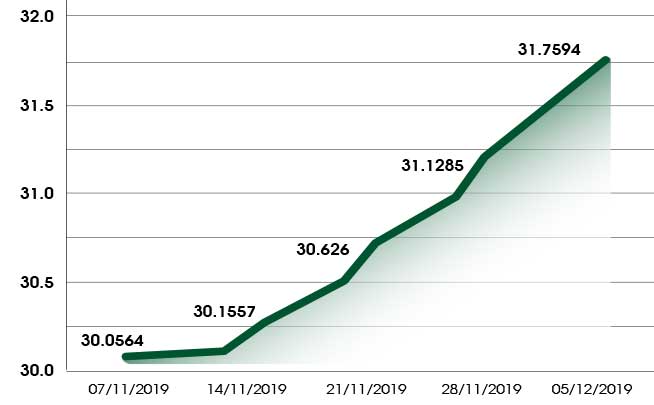
Oct 19 , 2019
By FASIKA TADESSE ( FORTUNE STAFF WRITER )
 The National Bank of Ethiopia (NBE) ordered financial institutions to stop recognising gains from fixed asset valuation, including buildings, as paid-up capital.
The National Bank of Ethiopia (NBE) ordered financial institutions to stop recognising gains from fixed asset valuation, including buildings, as paid-up capital. The National Bank of Ethiopia (NBE) ordered financial institutions to stop recognising gains from fixed asset valuation, including buildings, as paid-up capital.
Issued on October 8, 2019, the circular signed by Tirunh Mitafa, the outgoing vice governor of the Bank, ordered all of the banks and insurance companies to hold the gains obtained as a result of asset valuations in retained earning accounts until further direction is issued.
After the adoption of the International Financial Reporting Standards (IFRS), a set of accounting standards that provide a common global language for business activities, the financial institutions have begun valuing assets against the current market price. Previously, assets and liabilities have been recorded on their accounting records as a historical cost, aka the original cost. As a standard, IFRS requires banks and insurance companies to conduct a valuation of their assets and liabilities.
Starting from last year, while preparing financial reports, the banks and insurance companies are valuing their assets and liabilities against current market prices. They also add the gains from the properties into paid-up capital after paying taxes.
“This practice may not be prudent as the revaluation gains are being distributed to shareholders before the realisations of the gains,” reads the letter from the central bank.
The latest circular followed a letter that was issued two weeks ago informing the financial institutions to halt the submission of their audited financial reports. Dispatched on October 1, 2019, the letter indicated that the central bank had requested an explanation from the Accounting & Auditing Board of Ethiopia (AABE) on how the revaluation gains should be treated.
“This [revaluation gains] needs caution as the approach may not be valid in a review of the safety and soundness of the institutions,” reads the letter from the central bank.
After discussing with the Board, the NBE ordered the financial institutions to keep the gains in a retained earning account - where profits are retained before dividends are paid since the amount could be subjected to adjustment - until another direction is issued.
The Board has been informing all the financial institutions and the central bank to be cautious on the issue, according to a senior official from the Board, who requested anonymity.
"Capitalising gains that are not held in cash has a risk," said the official. "It could cause a crisis in the institutions as well as the overall economy."
He explains that the value of the assets could depreciate after the gains are already injected into the paid-up capital of the institutions.
Abdulmenan Mohammed, an accountant and financial statement analyst with over 15 years of experience, agrees that the gains should not be considered as income even though it goes through profit and loss accounts due to changes to the accounting standard.
"The accountants considered it as income, due to the pass-through profit and loss account," Abdulmenan said.
However, he believes that gains should be classified as revaluation reserves, not as retained earnings.
"It is inappropriate to classify it as retained earnings," he says.
The Ministry of Revenues, the central bank and the Board, are still in discussion on how to process gains from asset valuation.
If the central bank decided to recover the gain from the paid-up capital, the financial status of the banks and insurance companies would not be affected, since they can recover it from this year's dividend, according to Abdulmenan.
The Board proposed that the banks and insurance companies recover the gains they injected into paid-up capital. It also suggested the Ministry of Revenues return the tax it collected from revaluation gains, according to the same source.
In the last fiscal year, all of the financial institutions have submitted their reports prepared with IFRS, a shift from the Generally Accepted Accounting Principles (GAAP) system. IFRS adoption came onto the scene after the government legislated a financial proclamation, a move followed by the founding of the Accounting & Audit Board of Ethiopia, which aimed at transforming the financial reporting system of the country.
The board scheduled the implementation of the system according to the companies' threshold and the degree of their public interest. Banks, insurance firms, financial institutions and public enterprises fall under the first phase with a compliance deadline set for July 2017.
Until the issue is resolved, dividends might not be paid to shareholders of the banks and insurance companies, since the central bank needs to approve the audited financial reports of the companies before general assemblies.
PUBLISHED ON
Oct 19,2019 [ VOL
20 , NO
1016]

Radar | Dec 15,2024

Fortune News | Dec 07,2019

Fortune News | Mar 16,2020

Radar | Aug 20,2022

Radar | Jun 18,2022

Radar | Aug 05,2023

Radar | Jun 22,2024

Viewpoints | Nov 11,2023

Radar | Dec 16,2023

Radar | Aug 13,2022

Dec 22 , 2024 . By TIZITA SHEWAFERAW
Charged with transforming colossal state-owned enterprises into modern and competitiv...

Aug 18 , 2024 . By AKSAH ITALO
Although predictable Yonas Zerihun's job in the ride-hailing service is not immune to...

Jul 28 , 2024 . By TIZITA SHEWAFERAW
Unhabitual, perhaps too many, Samuel Gebreyohannes, 38, used to occasionally enjoy a couple of beers at breakfast. However, he recently swit...

Jul 13 , 2024 . By AKSAH ITALO
Investors who rely on tractors, trucks, and field vehicles for commuting, transporting commodities, and f...

Jun 28 , 2025
Meseret Damtie, the assertive auditor general, has never been shy about naming names...

Jun 21 , 2025
A well-worn adage says, “Budget is not destiny, but it is direction.” Examining t...

Jun 14 , 2025
Yet again, the Horn of Africa is bracing for trouble. A region already frayed by wars...

Jun 7 , 2025
Few promises shine brighter in Addis Abeba than the pledge of a roof for every family...